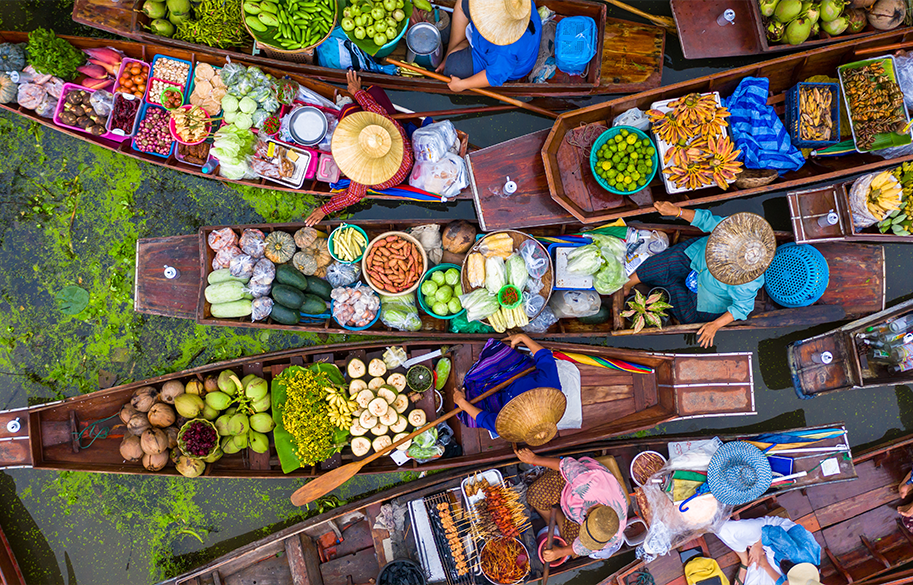Traveling to a new country can be an exciting and rewarding experience, but truly immersing yourself in the local culture can take your trip to the next level. Cultural immersion is not just about checking off tourist attractions from a list, but about experiencing the everyday life of the locals and gaining a deeper understanding of their customs, traditions, and values. By embracing cultural immersion, travelers can open their minds to new perspectives, broaden their horizons, and develop a greater appreciation for diversity.
When travelers immerse themselves in the local culture, they have the opportunity to interact with locals on a more personal level, learn about the history and traditions of the destination, and participate in authentic cultural experiences. Whether it’s sampling traditional cuisine, attending local festivals and events, or learning a few phrases in the local language, cultural immersion allows travelers to step outside of their comfort zones and truly connect with the people and places they encounter during their travels.
In the next part of this article, we will explore practical tips and strategies for achieving cultural immersion while traveling abroad. From seeking out homestay opportunities and volunteering with local organizations to participating in cultural workshops and classes, there are countless ways to immerse yourself in the local culture and make the most of your travel experience. Stay tuned for valuable insights and advice on how to make your next trip a truly unforgettable cultural adventure.
Respect Local Customs and Traditions
When traveling abroad, it is essential to respect the local customs and traditions of the destination you are visiting. Take the time to research and understand the cultural norms of the country, including appropriate dress codes, greeting customs, and dining etiquette. By showing respect for the local customs, you will not only avoid offending the locals but also demonstrate your appreciation for their culture.
Learn the Language
Learning a few basic phrases in the local language can go a long way in enhancing your cultural immersion experience. Even if you are not fluent in the language, making an effort to communicate in the local tongue shows respect and can help you connect with the locals on a deeper level. Consider taking a language course or using language learning apps to improve your language skills before your trip.
Interact with Locals
One of the best ways to experience local life abroad is by interacting with locals. Strike up conversations with shopkeepers, taxi drivers, and other residents to learn more about their culture and way of life. Locals can offer valuable insights, recommendations, and even invite you to participate in cultural activities or events that you may not have discovered on your own.
Participate in Cultural Activities
Immerse yourself in the local culture by participating in cultural activities such as traditional festivals, cooking classes, or art workshops. These experiences will not only provide you with a deeper understanding of the local customs and traditions but also give you an opportunity to connect with the community and make lasting memories.
Stay with Locals
Consider staying with locals by booking homestays or accommodations through platforms like Airbnb. Living with a local family allows you to experience daily life in the destination firsthand and gain a unique insight into the local culture. You may also have the opportunity to share meals, stories, and experiences with your hosts, creating a more immersive and authentic travel experience.
Pros of Cultural Immersion 101: A Traveler’s Guide to Experiencing Local Life Abroad
One of the main advantages of following Cultural Immersion 101 is the opportunity to truly experience the local way of life in a foreign country. Instead of just being a tourist, you get to live like a local, eat local cuisine, and participate in local traditions and activities.
By immersing yourself in the culture of the place you are visiting, you gain a deeper understanding and appreciation for the country and its people. You get to see the world from a different perspective and learn about different customs and beliefs.
Another benefit of cultural immersion is the opportunity to make meaningful connections with locals. By interacting with people in their own environment, you can forge friendships and form lasting relationships that can enrich your life and broaden your horizons.
Moreover, cultural immersion can also lead to personal growth and self-discovery. Stepping out of your comfort zone and immersing yourself in a new culture can challenge your beliefs and broaden your worldview. It can help you become more open-minded, empathetic, and culturally aware. If you’re considering a journey that embraces cultural diversity, explore the possibilities with https://www.vietnamvacationtours.com/, where authentic experiences await.
Cons of Cultural Immersion 101: A Traveler’s Guide to Experiencing Local Life Abroad
While Cultural Immersion 101 may offer valuable insights into experiencing local life abroad, there are certain drawbacks to consider before embarking on this journey.
One of the main cons of following a guide like Cultural Immersion 101 is the potential for cultural misunderstandings. Despite the best intentions, travelers may inadvertently offend locals or misinterpret cultural norms, leading to awkward or uncomfortable situations.
Another drawback of relying heavily on a guide for cultural immersion is the risk of missing out on authentic experiences. By adhering strictly to the recommendations of the guide, travelers may overlook opportunities for spontaneous interactions and genuine connections with locals.
Additionally, Cultural Immersion 101 may promote a superficial understanding of the local culture. By focusing on checklists and must-see attractions, travelers may fail to grasp the deeper nuances and complexities of the community they are visiting.
Overall, while Cultural Immersion 101 can provide a helpful framework for experiencing local life abroad, it is important to approach it with an open mind and a willingness to embrace unexpected challenges and opportunities.
